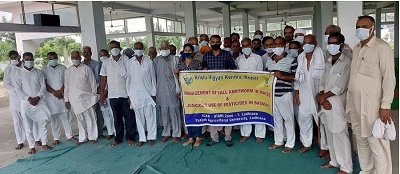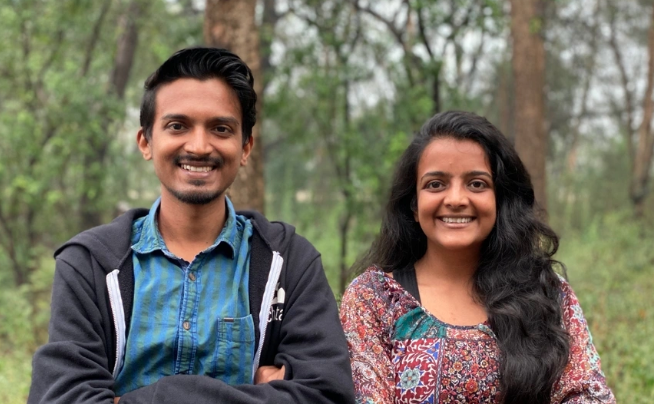KVK, Ropar organises awareness camp on fall armyworm
Farmers were sentisised on fall armyworm invasion, identify the damage needful curative action
Krishi Vigyan Kendra, Ropar under Directorate of Extension Education and ICAR ATARI Zone-1, Punjab Agricultural University, Ludhiana organised a farmers’ awareness camp at village Jhandian-Kalan for the management of fall armyworm in maize.
Dr GS Makkar, Deputy Director, KVK Ropar apprised that the camp was a part of KVK’s campaign on sensitising farmers to be wary of fall armyworm invasion. 45 farmers from different villages participated in the programme. While sharing the details, Dr Makkar added that fall armyworm has become the problem of plenty and timely identification of damage and needful curative action are must for harvesting good returns. “Careful scouting of maize crop throughout the growing season is highly important”, he added.
Dr Pawan Kumar discussed that the larvae vary from greenish-brown, light brown or light grey. Female lays eggs in groups of 100-150 eggs on the lower or upper surface of the leaves. Young larvae feed by scraping the leaf surface and later causing damage to the central whorl leaves where a large amount of faecal matter can be seen. The damage starts in patches, spreads rapidly in the entire field if not monitored carefully and managed timely. Farmers were also advised to follow recommended chemical control measures with needful precautions.
Ankurdeep Preeti shared information on the role of agroforestry in promoting the diversity of natural enemy fauna. The programme ended with field visits to nearby maize fields.
Farmers were sentisised on fall armyworm invasion,















